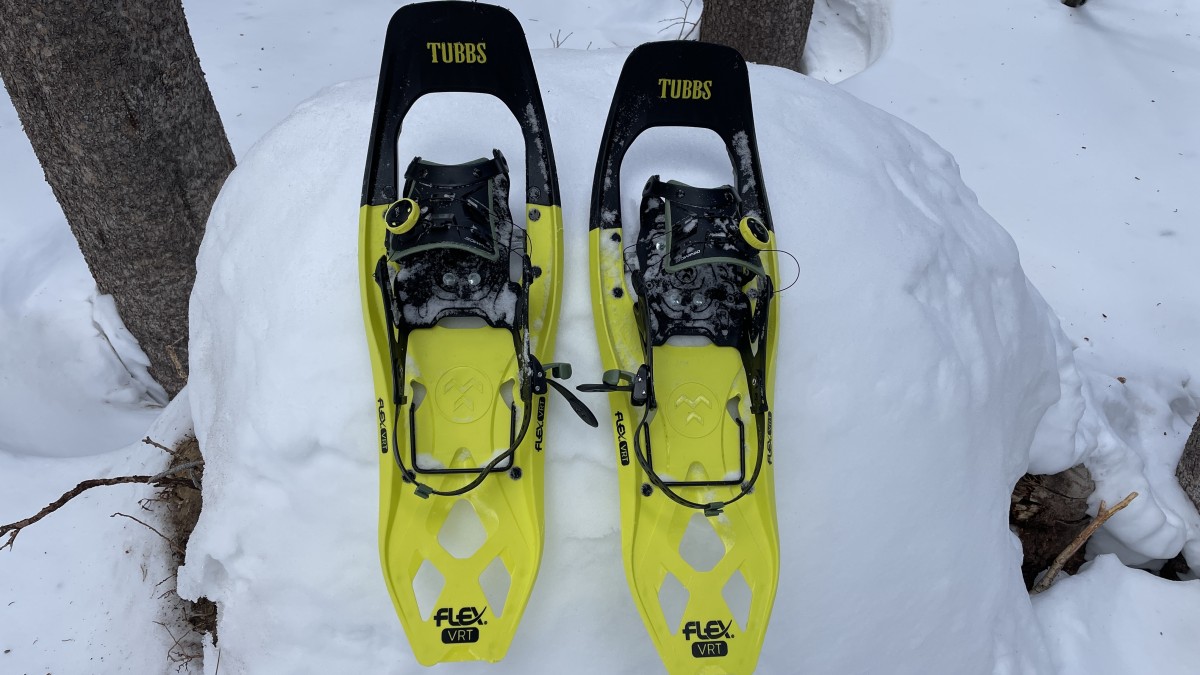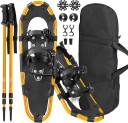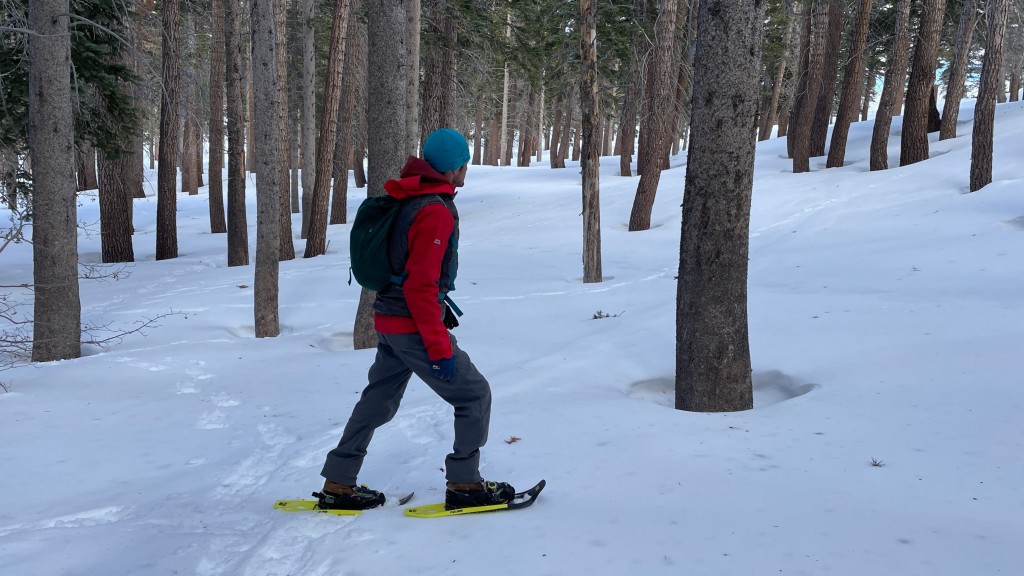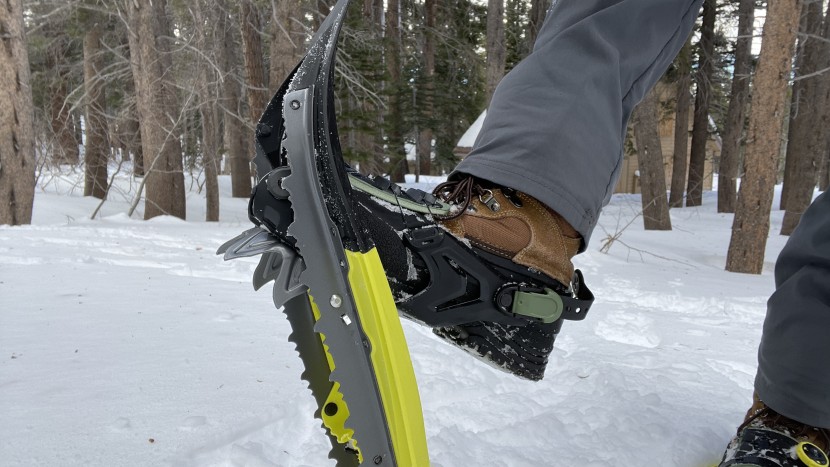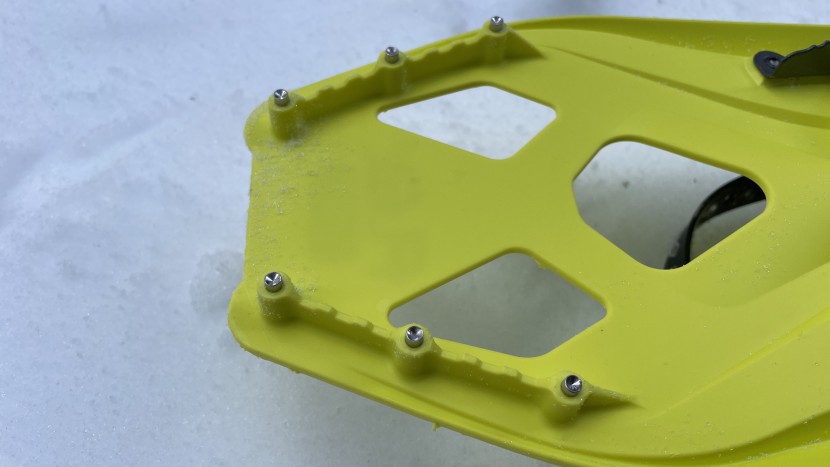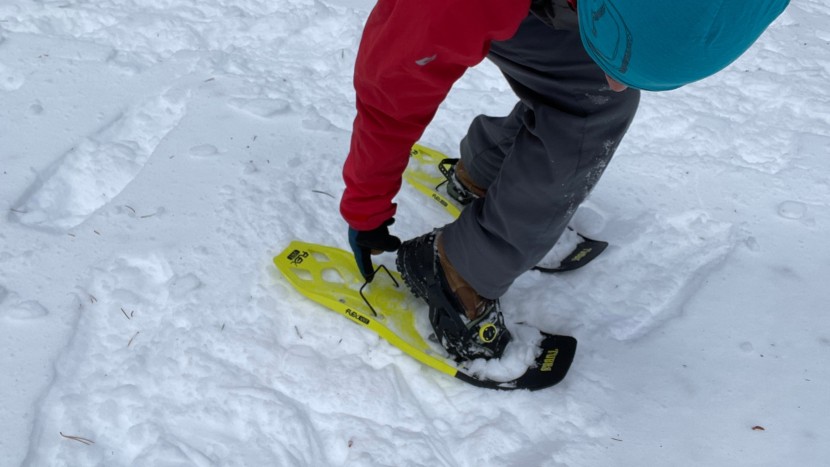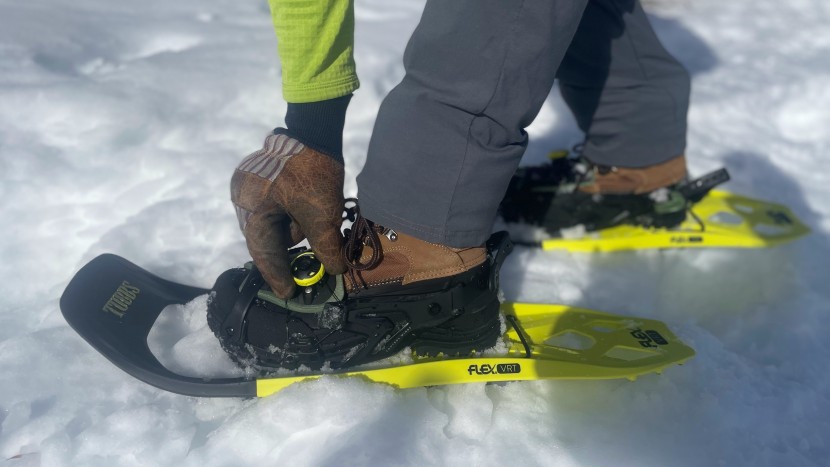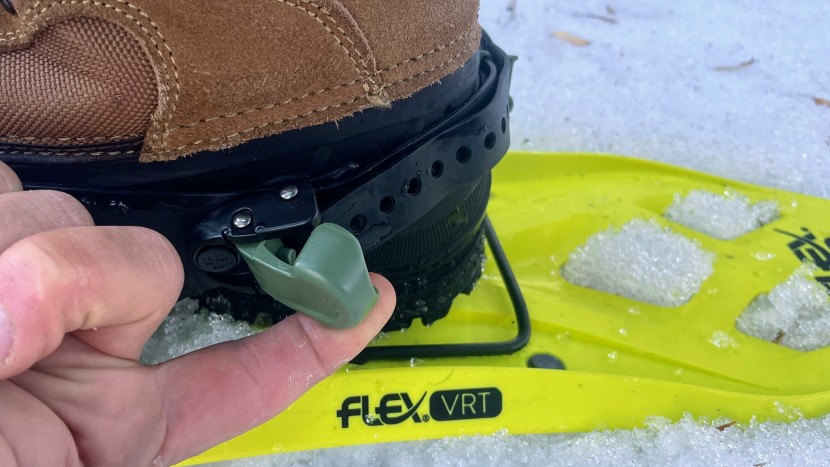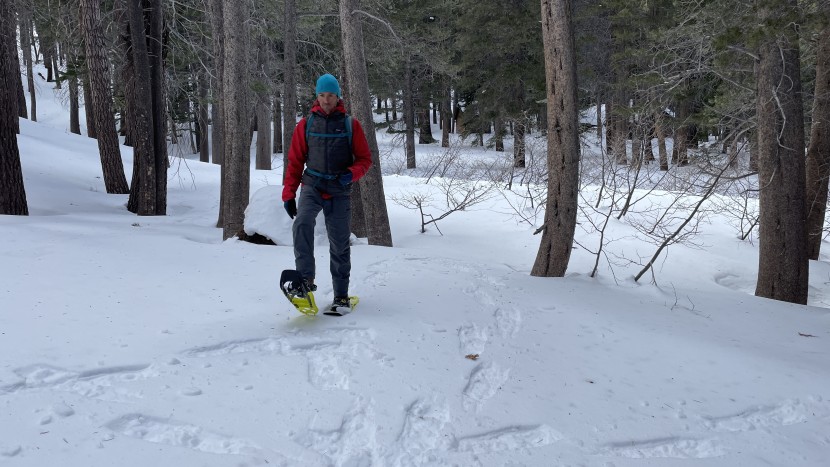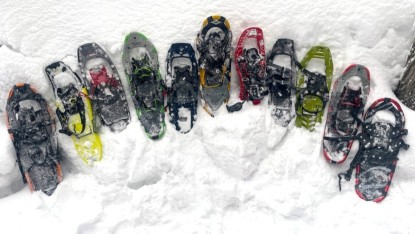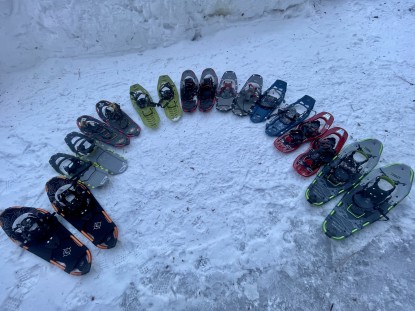Our Verdict
Compare to Similar Products
 This Product
Tubbs Flex VRT | |||||
|---|---|---|---|---|---|
| Awards | High Performance Affordability | Best for Fresh Deep Snow | Best for Trails | Best on A Tight Budget | |
| Price | $280 List $241.49 at Amazon | $170 List $153.15 at Amazon | $220 List $219.95 at Amazon | $289.95 at Backcountry Compare at 2 sellers | $60 List |
Overall Score  |
|||||
| Star Rating | |||||
| Bottom Line | This is a top-scoring model with excellent traction and comfort | This reliable and well-priced snowshoe is versatile and easy to use | A good choice for off-trail travel and softer snow | A good choice for firm, hard-packed snow when you don't need a ton of float | While they're nothing special, this inexpensive model gets the job done for the occasional user |
| Rating Categories | Tubbs Flex VRT | MSR Evo Trail | Crescent Moon Big S... | TSL Symbioz Hyperfl... | GoPlus |
| Flotation (30%) | |||||
| Traction (30%) | |||||
| Walkability (20%) | |||||
| Bindings (20%) | |||||
| Specifications | Tubbs Flex VRT | MSR Evo Trail | Crescent Moon Big S... | TSL Symbioz Hyperfl... | GoPlus |
| Measured Weight (per pair) | 4.4 lbs | 3.7 lbs | 5.1 lbs | 4.6 lbs | 3.8 lbs |
| Sizes Available | 21", 25", 29" | 22" (one size) | 32" (one size) | 20.5" (S), 23.5" (M), 27" (L) | 21", 25", 30" |
| Binding System | BOA and rubber strap | Rubber net and straps with pin-in-hole | Rubber straps with plastic buckles | Combination of rigid plastic, nylon straps, cam locks, and ratchet style straps | Ratchet straps with plastic buckles, nylon heel strap |
| Frame Material | Plastic and steel | Martensitic steel | Aluminum | Composite | Aluminum |
| Measured Surface Area | 195 sq in | 183 sq in | 256 sq in | 162 sq in | 189 sq in |
| Measured Dimensions | 26"L x 8"W | 24"L x 8"W | 32"L x 10"W | 22"L x 8"W | 25"L x 8"W |
| Binding/Deck Connection | Hinged | Hinged | Strapped | Hinged | Strapped |
| Crampon/Traction Aids | Steel crampons and rails | Steel crampons and rails | Steel crampons | Steel crampons and teeth | Aluminum crampons and teeth |
| Deck Material | Torsion Deck (plastic) | Polypropylene | Polyurethane fabric | Composite | Polyethylene fabric |
| Heel Lift | Yes | No | Yes | Yes | No |
| Flotation Tails Sold Separately | No | Yes | No | No | No |
| Men's/Women's Versions Available | Yes | Unisex | Yes | Unisex | Unisex |
| Optimum Weight Load (per manufacturer) | 80-160 lbs (size 21") 120-200 lbs (size 25") 190+ lbs (size 29") |
up to 180 lbs | up to 225 lbs | 65-180 lbs (size S) 110-260 lbs (size M) 150-300 lbs (size L) |
65-155 lbs (size 21") 110-200 lbs (size 25") 150-260 lbs (size 30") |
| Tested Size | 25" | 22" | 32" | M | 25" |
Our Analysis and Test Results
Our testing team gets psyched when legacy snowshoe companies adopt new technology. In the case of the Tubbs Flex VRT, that new tech is a plastic deck and BOA system on the binding. While these aren't exactly new ideas (and this model has had them for a while), the snowshoeing world moves slowly enough that they qualify. In some ways, the Flex VRT is an amalgamation of many different snowshoes in our review. In other ways, it takes the best of the best from other products. However, the end result is nothing remarkable. It is solidly built, functions well, and hits a versatile design combination.
Flotation
The fully rigid decking of the Flex VRT is supportive and works well on firm-to-moderately soft snow. In normal “trail” and dense snow conditions, the Flex will have all the float you need. The rigid, molded, and stiffened deck makes the surface area effective in floating on softer snow.
Traction
In head-to-head testing, the generous crampons combined with hardened steel longitudinal rails provide excellent traction for the slipperiest of packed snow and ice. Whether the snow is slippery from wind-packing action or from melt-freeze metamorphosis, the sharp steel spikes of the Flex VRT will bite in. Augmenting the crampons and rails (which are noticeably bigger than on other models) are ridges molded into the deck and tiny metal spikes on the tail. Our testers found these two features particularly beneficial on descents.
Walkability
The Flex VRT is moderately sized, with a hinged binding/deck junction and a rigid platform. This configuration, combined with the excellent traction noted before, makes the Flex one of the best snowshoes in our test for the steepest and most technical terrain. The integrated heel lift allows the user to snowshoe straight uphill with the crampons and flotation fully engaged while keeping the foot mostly level. For all these reasons, we recommend the Flex for rugged, firm-snow travel. In all other conditions, there is likely a better choice.
Bindings
Every tester loved the BOA system for wearing. The primary disadvantage of these bindings, in terms of ease of use, is that they are bulkier to pack. Beyond this, we found the operation of this binding to be straightforward.
In our experience, including rugged terrain in Colorado's Rocky Mountain National Park, the bindings of the Flex hold on tenaciously enough. Some other online reviews indicate that the BOA system can ice up. Our test team has experience with the BOA system on snowshoes, ski boots, and snowboard boots and has had no problems in the wettest and coldest of conditions. In short, we trust the bindings of the Flex but understand hesitations around this mechanical device.
The hybrid BOA and heel strap configuration of the Flex is well suited to spread the force of the binding pressure over the softest of winter footwear. That being said, these snowshoes are designed for use in rough terrain where stiffer footwear will likely be worn. In that case, even the tightest cinching bindings do not cause undue pressure. If you use stiff mountaineering boots for snowshoeing, the stretchy rubber straps are secure without compromising comfort.
Should You Buy the Tubbs Flex VRT?
Hikers who are seriously considering this snowshoe should have high and wild terrain on their wish list. The feature set of the VRT is optimized for big mountain travel. Folks who are staying away from steeper or technical terrain can pay less or find a model with other, perhaps more desirable, features.
What Other Snowshoes Should You Consider?
Those looking to the Flex VRT for mountain use would also do well to check out the MSR Lightning Ascent. They have similar features with bindings that are slightly easier to use. The MSR Evo Ascent is also a technically minded model but also performs well on mellow trails and is a bit lighter than the VRT.


